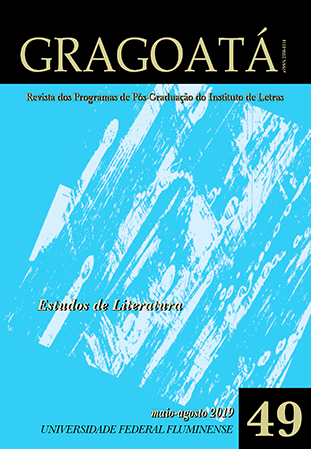The sexual throughout the body of the tongue
DOI:
https://doi.org/10.22409/gragoata.v24i49.34094Keywords:
tongue, translation, gender, psychoanalysis.Abstract
In Fragment 19 of the Harvard Manuscripts, Ferdinand de Saussure claims that difference, since it admits degrees, is an uncomfortable term. In this sense, similarity and difference are entangled, confusing their nuances; and there was no escaping the fact that, although it seems inevitable to perceive the possibility of the discernible, it is also costly to know, structurally, between what elements one will have to distinguish, and in what terms. If anatomy as destiny (FREUD, 1912; 1924) is more nuanced than one would like – since it also admits degrees –, neither can one categorically deny the suspicion that the recognized differences are rather instituted by giving a name; a name that, once given, marks the boundaries of its domains much more than simply recognizes them. If the anatomical difference does not mitigate the ultimate impossibility of conjugation between speaking beings, how to think of the transit/translation between bodies (their mutual attempts of access) and where to situate the differences that belong to them? In order to elaborate an answer, this work starts from this hypothesis that it is advisable to develop the reflection about sexual difference some spans above the waistline, resorting to another organ, the only “innard” that the human body leaves visible; a viscus that, not by chance, short-circuiting the inside and the outside of the body that it inhabits, is consecrated in the perhaps most celebrated – and also most prosaic – of the catachreses: the tongue.Downloads
Downloads
Published
How to Cite
Issue
Section
License
Authors who publish in Gragoatá agree to the following terms:
The authors retain the rights and give the journal the right to the first publication, simultaneously subject to a Creative Commons license CC-BY-NC 4.0, which allows sharing by third parties with due mention to the author and the first publication by Gragoatá.
Authors may enter into additional and separate contractual arrangements for the non-exclusive distribution of the published version of the work (for example, posting it in an institutional repository or publishing it in a book), with recognition of its initial publication in Gragoatá.

Gragoatá is licensed under a Creative Commons - Attribution-NonCommercial 4.0 International.











